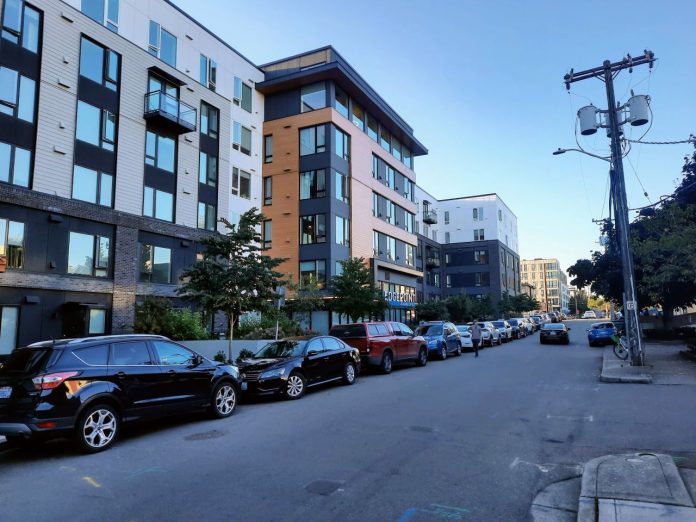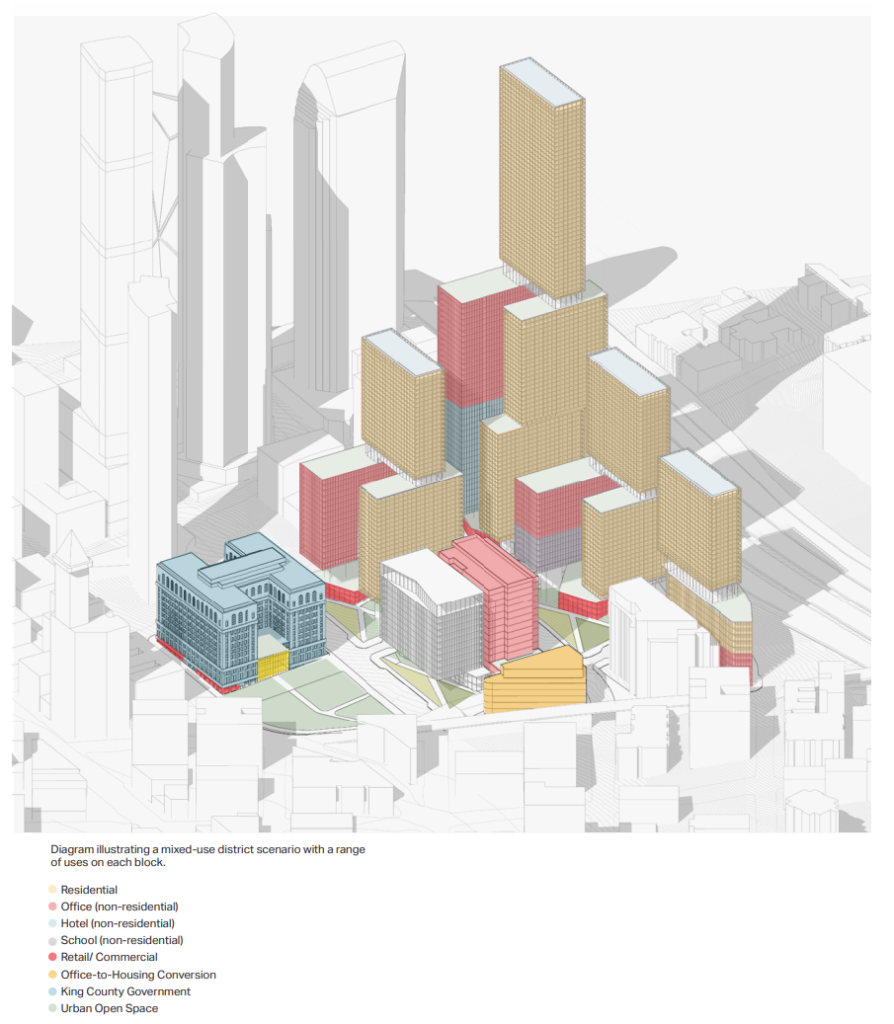
The Fight for $15 has been won. Now housing affordability is Seattle’s biggest challenge. Repealing wage standards would be a setback.
Over a decade ago, The Fight for $15 began when fast-food workers went on strike around the region to demand higher wages. Their vision will finally come to pass on January 1, 2025, when the city of Seattle completes its negotiated rollout of one minimum wage that covers all employees, with no subminimums or carveouts for tipped employees. The bargain that the mayor and city council struck with a coalition of workers and business owners ten years ago allowed some smaller businesses extra time to see the benefits of increased consumer demand.
Next year, thanks to cost-of-living adjustments written into the law to help working families deal with rising prices, Seattle’s new minimum wage of $20.76, or approximately $43,000 per year for a full time worker, will finally apply to all workers equally. That minimum wage, the long-awaited result of the Fight for $15, will be among the strongest in the nation.
Seattle’s promise to raise the wage has worked exactly as intended. Recently, anti-poverty organization Oxfam America issued a report finding that Washington State is the fifth best state in the nation for workers. Oxfam measured every state across three metrics, “wages, worker protections, and rights to organize,” and found that Washington state’s strong minimum wage helped our state stand out. So did the fact that Washington voters eliminated the subminimum wage for tipped workers in 1988, and voted twice more to maintain a high minimum wage for all workers. It’s no coincidence that Washington also consistently places among CNBC’s ranking of the top ten states for businesses. After all, when more workers have money to spend in their local communities, everyone prospers.
We’ve come a long way from those first fast-food strikes, but there’s still a long way to go. Seattle is at the epicenter of a national housing affordability crisis that has done major damage to Americans across the economic spectrum. According to Rentcafe, Seattle’s housing costs are a whopping 112% higher than the rest of the country. The average Seattle rent is $2,275 per month — that’s $27,300 per year, or almost two-thirds the gross income of a full-time minimum wage worker, leaving them severely rent burdened and unable to afford almost anything else.
Low-wage workers are disproportionately harmed by skyrocketing rents and out-of-control house prices. Just as economies grow when everyone can afford to participate, the opposite is also true: When workers can’t afford to live in an economy, that economy enters a negative feedback loop of shrinking consumer demand that hurts everyone. Workers who are falling behind are either going to move to a more affordable city, or they’re going to fall over the precipice and join Seattle’s growing unhoused population. We need to build a lot more housing that people can afford, and we need to do our best to ensure that high housing prices don’t push people out of the economy.
Our leaders are finally beginning to take notice. One of Vice President Kamala Harris’s signature campaign promises is to build three million units of housing by the end of her prospective first presidential term. But this ongoing drought of affordable housing isn’t a problem that can be solved by federal intervention alone — we need a commitment to building housing from the state, county, and city as well.
Local leaders are working to build more housing at every level. State legislators are directing record amounts of money into Washington’s Housing Trust Fund, our single best existing mechanism for funding affordable housing. King County Executive Dow Constantine is working to develop housing in a brand-new “civic campus” that would essentially create a new neighborhood on an underutilized 24.5-acre patch of Seattle’s downtown. And Councilmember Girmay Zahilay’s regional workforce housing proposal is a strong step forward to address the size and scope of the problem.

Until these and other creative solutions are put into action, we need to do our best to ensure that high housing prices don’t push people out of our economy — especially those workers at the bottom of the wage scale. That’s why, at a time when everyone across the state is paying historically high prices for housing, it’s truly bizarre that some members of the Seattle City Council have argued to instead cut worker pay, putting forth two bills that would shrink their paychecks.
One bill would have cut the wages of gig-economy food delivery drivers, and the other would have carved out a permanent tipped subminimum wage — the only one of its kind on the entire west coast — that would see workers at companies with 500 or fewer employees earn roughly $6,000 less per year than their peers at larger businesses.
Someone should tell the Council that going back on their word and cutting paychecks isn’t just bad economics — it’s hugely unpopular, too. Poll after poll after poll shows that Americans approve of minimum-wage increases by a high margin. Business interests successfully kept the wage low for decades by falsely arguing that when you raise wages, you cut jobs.
But in the 10 years since the Fight for $15 began, Americans have seen the vast and growing body of evidence that proves raising the wage is good for the economy, creating jobs and growing prosperity for everyone. Just last month, University of California Berkeley economists published a study of California’s new $20 minimum wage for workers in the fast-food sector that found the wage “increased average hourly pay by a remarkable 18 percent, and yet it did not reduce employment.”
It’s not easy for workers earning the minimum wage to get by in Seattle right now. Too many people are holding on by a thread as prices continue to rise. The City Council doesn’t seem to understand that the last thing Seattle families struggling with high housing costs need is a pay cut. Workers fought hard to raise Seattle’s minimum wage, and the bigger paychecks they won are helping them (barely) scrape by in our expensive housing market today.
The Council should do the job that they campaigned on: making Seattle an affordable and vibrant place to live, work, and visit. They can do that by directing their energy to the construction of more affordable housing, more public transit, and the establishment of mental health initiatives that will help people regain control of their lives. In short, the Council’s goal should be making Seattle more affordable and livable for the vast majority of families and making the economy work for everyone — not just a wealthy few at the top.

Paul Constant
Paul Constant is a fellow at Civic Ventures, a public policy incubator, and a cofounder of the award-winning Seattle Review of Books. His writing has appeared in BuzzFeed, the L.A. Times, The Stranger, Business Insider, i09, the Seattle Times, and in many other magazines, newspapers, and websites. A comic that he co-created, Planet of the Nerds, was optioned by Paramount Players for a film adaptation.

